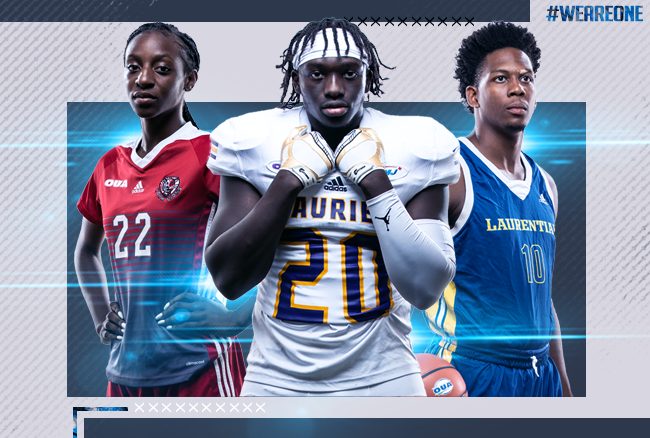OUA continues to focus on equality and social justice through BBI task force

Racial inequality and social justice have long been an issue across all sports. Top North American leagues such as the NFL, NBA and NHL have faced harsh criticism regarding the policies they have put in place and the lack of minority representation in decision-making roles.
In a uniquely positive way, the unprecedented year of 2020 put diversity and equality in the spotlight given the events that happened in the United States. While sports have typically been viewed as an escape from politics and other pressing life issues, this year was much different as sports leagues used their platforms and led initiatives to inspire change.
The OUA has been a great example of a league pushing towards positive social change. With the creation of the Black, Biracial and Indigenous Task Force this past summer, the OUA has made great strides in that aspect and is committed to removing racism in sports.
Laurier’s department of athletics and recreation is a big part of the task force. Fourth-year men’s football linebacker Tommy Bringi and new VP of Student Affairs Ivan Joseph are both members on the BBI committee. Laurier president Deborah MacLatchy was also integral to the creation of the task force and has the honour of serving as the chair of the Board of Directors in the OUA, along with her role at Laurier.
Joseph, who has been around USPORTS and the OUA for over two decades as a coach and an athletic director, knows firsthand how important this initiative is.
“When I was an athletic director in the OUA, I was the only person of colour, period” Joseph said. “I am happy to be a part of it because there needed to be change in the OUA,” he continued.
Along with his sports credentials, Joseph views himself as a motivational speaker and has always advocated for better representation across all sectors.
He led an investigative report focused on McMaster University and their department of athletics this past summer after several Black and Indigenous student-athletes raised concerns regarding their treatment with the teams.
The report by Joseph is yet another reason why the OUA’s implementation of the BBI task force was much needed and long overdue.
“My job as an athletic director was to try and make sure there was representation with the coaches I hired and with the athletes I recruited. That is one voice at one institution, I think more people needed to be doing that,” Joseph said.
His point is valid and was brought up by the task force in a powerful presentation during the OUA Annual General Meeting back in October. Out of 26 USPORTS Football head coaches, only three of them are Black or Indigenous. In addition, only one out of 56 Athletic Directors in the country are a minority.
A survey included in the presentation that spoke to 79 Black or Indigenous student-athletes highlighted the glaring disparity in representation. The survey showed that 58 students felt underrepresented on their varsity team and 46 of them felt unsupported, while over half of the athletes interviewed have experienced “micro racial aggressions” inside the team environment.
The survey and report by Joseph which found McMaster’s department to be engaged in a “culture of systemic anti-black racism,” has led to the creation of not only the BBI task force but also an OUA Women’s Committee and a group focused on equality, diversion and inclusion.
“I’m happy that the OUA has seen the lack of representation and diversity as a problem and are willing to have a conversation,” said Ivan Joseph.
While this all sounds good on paper, the OUA is making sure that they follow through on their bold initiatives. In doing so, the BBI task force meets every week and have held various virtual halls. Their presentation at the general meeting also outlined a schedule for the next year, where they will focus on anti-racism policy and anti-racism training.
In order for positive change to be made, the OUA is making sure that conversations are taking place, suggestions are being brought forward and eventually concrete steps can be taken.
To increase representation in the hiring process, the OUA has plans to implement the Bernie Custis rule, named after former CFL quarterback Bernie Custis this spring, which will require schools to interview at least one minority candidate for a vacant head coaching or leadership position. This is similar to the Rooney Rule in the NFL, mandating NFL teams to interview at least one Black candidate for the head coaching position.
With the continued progress of the BBI task force and the women and inclusion committees, the OUA is on the right path towards making change. In a positive way, the intersection of sports alongside politics and social justice this past summer led to athletes and leaders striving to make a positive impact and because of that, leagues like the OUA should be in a much better place once competition resumes.

